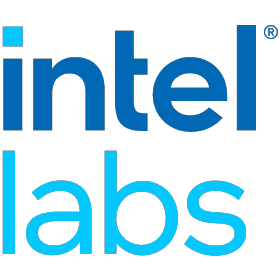
Integration: fastRAG
fastRAG is a research framework for efficient and optimized retrieval augmented generative pipelines
fastRAG is a research framework for efficient and optimized retrieval augmented generative pipelines, incorporating state-of-the-art LLMs and Information Retrieval. fastRAG is designed to empower researchers and developers with a comprehensive tool-set for advancing retrieval augmented generation.
Comments, suggestions, issues and pull-requests are welcomed! ❤️
📣 Updates
- 2024-05: fastRAG V3 is Haystack 2.0 compatible 🔥
- 2023-12: Gaudi2 and ONNX runtime support; Optimized Embedding models; Multi-modality and Chat demos; REPLUG text generation.
- 2023-06: ColBERT index modification: adding/removing documents.
- 2023-05: RAG with LLM and dynamic prompt synthesis example.
- 2023-04: Qdrant
DocumentStoresupport.
Key Features
- Optimized RAG: Build RAG pipelines with SOTA efficient components for greater compute efficiency.
- Optimized for Intel Hardware: Leverage Intel extensions for PyTorch (IPEX), 🤗 Optimum Intel and 🤗 Optimum-Habana for running as optimal as possible on Intel® Xeon® Processors and Intel® Gaudi® AI accelerators.
- Customizable: fastRAG is built using Haystack and HuggingFace. All of fastRAG’s components are 100% Haystack compatible.
🚀 Components
For a brief overview of the various unique components in fastRAG refer to the Components Overview page.
| LLM Backends | |
| Intel Gaudi Accelerators | Running LLMs on Gaudi 2 |
| ONNX Runtime | Running LLMs with optimized ONNX-runtime |
| OpenVINO | Running quantized LLMs using OpenVINO |
| Llama-CPP | Running RAG Pipelines with LLMs on a Llama CPP backend |
| Optimized Components | |
| Embedders | Optimized int8 bi-encoders |
| Rankers | Optimized/sparse cross-encoders |
| RAG-efficient Components | |
| ColBERT | Token-based late interaction |
| Fusion-in-Decoder (FiD) | Generative multi-document encoder-decoder |
| REPLUG | Improved multi-document decoder |
| PLAID | Incredibly efficient indexing engine |
📍 Installation
Preliminary requirements:
- Python 3.8 or higher.
- PyTorch 2.0 or higher.
To set up the software, clone the project and run the following, preferably in a newly created virtual environment:
pip install fastrag
There are additional dependencies that you can install based on your specific usage of fastRAG.
For the example below, we need to install extra packages via the following command:
pip install fastrag[intel, openvino]
Usage
You can import components from fastRAG and use them in a Haystack pipeline:
from haystack.components.retrievers.in_memory import InMemoryBM25Retriever
from haystack.components.builders.prompt_builder import PromptBuilder
from haystack.components.rankers import TransformersSimilarityRanker
from fastrag.generators.openvino import OpenVINOGenerator
prompt_template = """
Given these documents, answer the question.
Documents:
{% for doc in documents %}
{{ doc.content }}
{% endfor %}
Question: {{query}}
Answer:
"""
openvino_compressed_model_path = "path/to/quantized/model"
generator = OpenVINOGenerator(
model="microsoft/phi-2",
compressed_model_dir=openvino_compressed_model_path,
device_openvino="CPU",
task="text-generation",
generation_kwargs={
"max_new_tokens": 100,
}
)
pipe = Pipeline()
pipe.add_component("retriever", InMemoryBM25Retriever(document_store=store))
pipe.add_component("ranker", TransformersSimilarityRanker())
pipe.add_component("prompt_builder", PromptBuilder(template=prompt_template))
pipe.add_component("llm", generator)
pipe.connect("retriever.documents", "ranker.documents")
pipe.connect("ranker", "prompt_builder.documents")
pipe.connect("prompt_builder", "llm")
query = "Who is the main villan in Lord of the Rings?"
answer_result = pipe.run({
"prompt_builder": {
"query": query
},
"retriever": {
"query": query
},
"ranker": {
"query": query,
"top_k": 1
}
})
print(answer_result["llm"]["replies"][0])
#' Sauron\n'
For more examples, check out Example Use Cases.
License
The code is licensed under the Apache 2.0 License.
Disclaimer
This is not an official Intel product.
